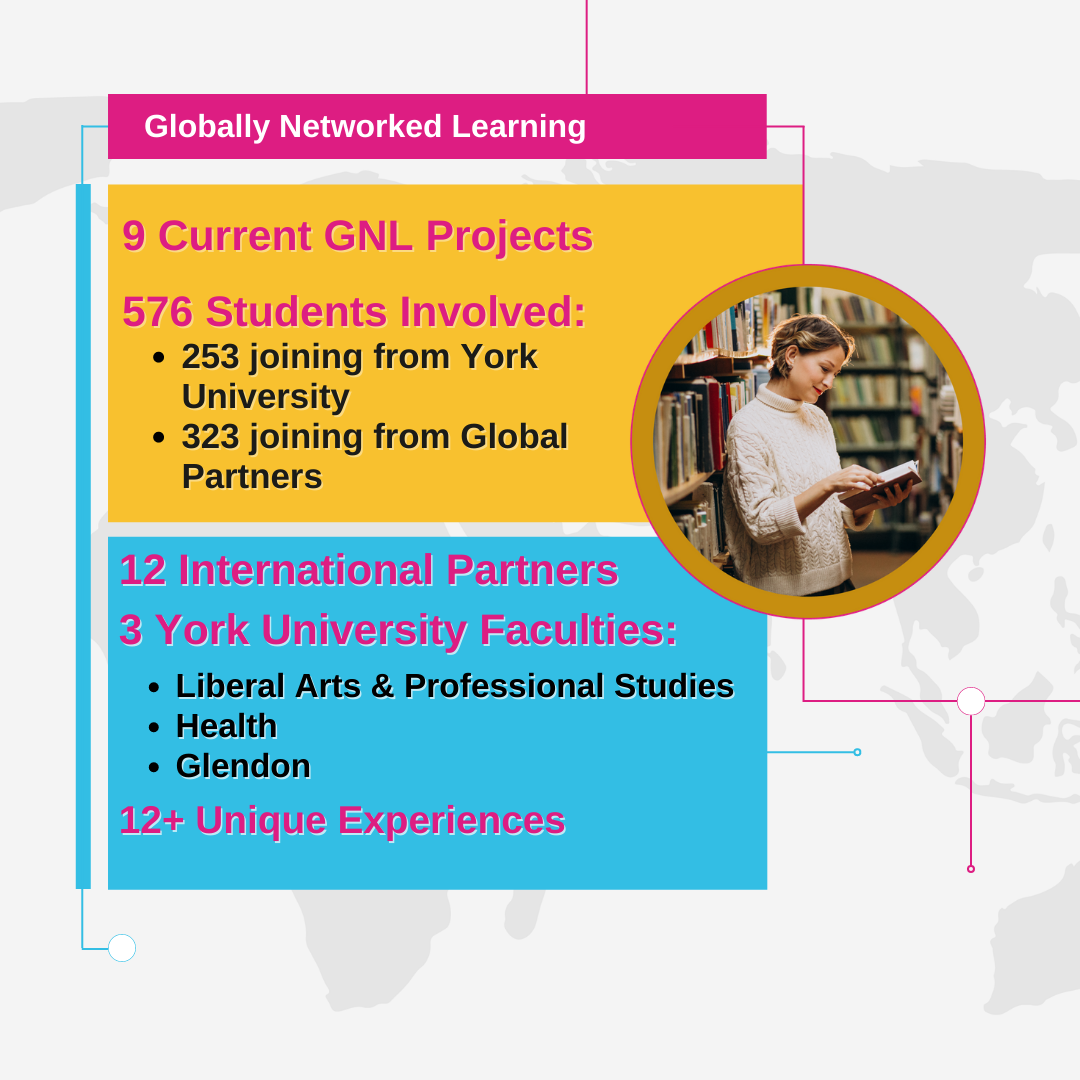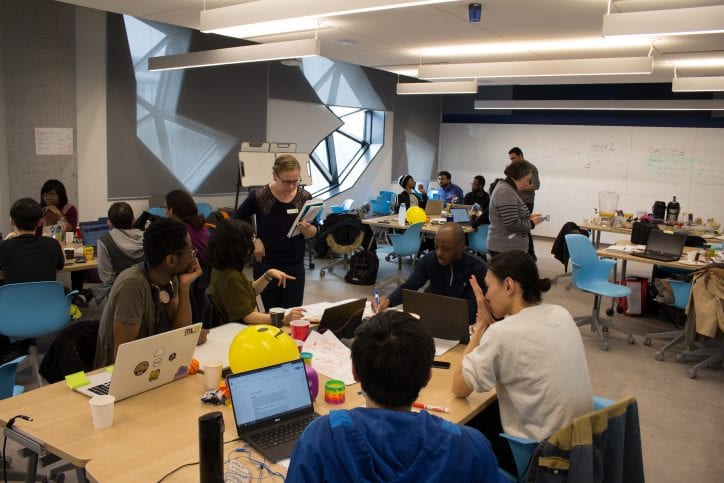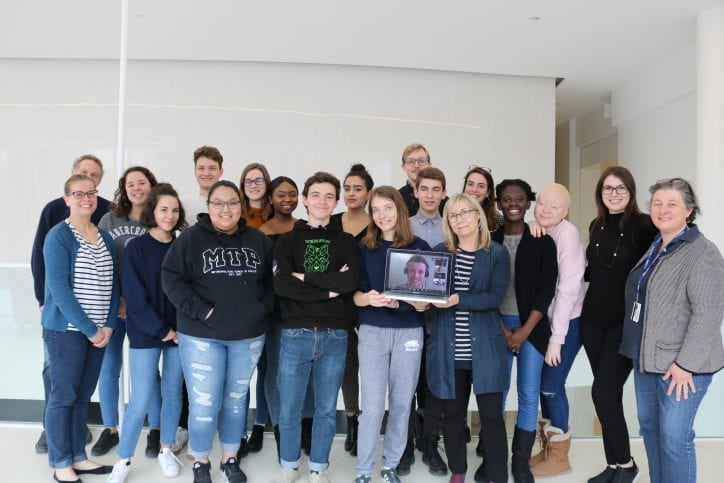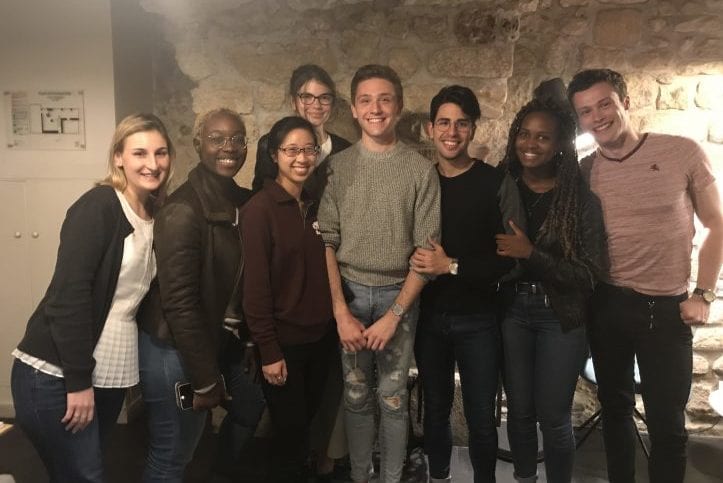How can GNL Benefit my Learning and Teaching Experience?
GNL provides higher education instructors with an opportunity to:
- experiment with open pedagogy, experiential education, and bring new dimensions or perspectives to their courses and projects;
- collaborate with international colleagues on joint activities or even co-develop new courses with researchers internationally; and
- engage their students in practices or research without paying the cost of going abroad.
Read about GNL for Students
Check out the Current Projects
How can the GNL team support you?
The GNL team is here to support the success of your project in many ways. We encourage you to reach out and book a meeting with us so that we can help you bring your GNL vision to life!
- Partnership-Building Support: Through the support of York International, we can assist you in finding a partner to collaborate with and facilitate introductions. We can also attend or facilitate initial meetings with you and your partner(s) to help build the relationship for the collaboration. For more information, please get in touch with Helen Balderama (helencb@yorku.ca) and Su Nguyen (sunguyen@yorku.ca)
- Promotions: Once your proposal is accepted, we create promotional material to boost enrolment and showcase your work, including course posters, video testimonials, and news articles. You may also be invited to participate in webinars and conferences to share your experiences.
- Assessment and Evaluation: The GNL team will also provide materials to support in evaluating the impact of your GNL activity on your students. You'll be able to see how your students have developed their intercultural communication, global fluency, and collaborative skills.
- Pedagogical and Curriculum Design: Through the support of the Teaching Commons, we can assist you to co-design learning outcomes, synchronous and asynchronous activities and collaborative projects for your GNL project with you and your partner(s). For more information, please get in touch with Lisa Endersby (lendersb@yorku.ca) and Dominique Scheffel-Dunand (dsdunand@yorku.ca).
- Administrative and Technical Support: Through the support of the Registrar's Office and UIT, we can support any questions relating to administration and technology. We can also offer support and advise on online platforms to facilitate collaboratives activities for your GNL project.
- Community of Practice: By embarking on a GNL journey with us, you will be connected to a whole community of faculty members. We will meet every semester as a group to share ideas, reflections, and feedback on the experience.
Toolkit
Here are a few steps to take when getting started on your GNL:
- Choose a course and start brainstorming! Think of a course where the learning outcomes could benefit from the GNL pedagogy. Then, think about what partnerships could deepen the students' learning in the subject. Check out our Resource Hub (links below) to find resources and examples of the GNL pedagogy in action.
- Attend a Workshop or Drop-in Session. Alternatively, you can watch recordings of past workshops and/or contact the GNL team for an individual consultation.
- Apply for the GNL Award. The GNL Award in the amount of CAD $500 is awarded to faculty members to support the development and implementation of their first three GNL project(s). Note: Filling out this form means you want to bring your ideas to life. Your ideas don’t need to be fully formed to fill this out, the GNL project team will support you from wherever stage you’re at, including partnership identification and development, pedagogical design and technological support. Learn more about the GNL Project Proposal.
Click on each Frequently Asked Question for some quick answers. If you have further questions, don't hesitate to get in touch with Project Team at gnl@yorku.ca.
What is Globally Networked Learning (GNL) and how does it work?
The Globally Networked Learning (GNL) initiative is a pedagogical approach connecting two or more classrooms from across the globe. Faculty and students engage in collaborative joint lectures and class discussions, assignments or research projects through innovative pedagogues and the use of online communication and information technologies. GNL partnerships can involve 2 or more instructors, cohorts of learners/ students, institutions, cultures/geographies or languages.
Most adopt a blended learning approach:
- Collaborative work between students takes place online either during teaching period or outside class times
- Mix synchronous & asynchronous learning moments to ensure flexibility, accessibility to content, instructors and resources
- Instructors and Learners can choose relevant tools for their collaborative working environment. Most take advantage of existing technologies supported at respective institutions.
- Can connect with study abroad and/or Face-to-face sessions at each school with students
For details about the GNL project at York, visit the GNL Website. You may also get in touch with the GNL Project Team.
- Prof. Dominique Scheffel-Dunand, Academic Lead, Globally Networked Learning Project/Lead, Bilingual Open Educational Resources/former Associate Dean for Research and Graduate Studies, Glendon dsdunand@glendon.yorku.ca
- Lisa Endersby, Educational Developer, Teaching Commons lendersb@yorku.ca
- Helen Balderama, Associate Director, International Partnerships and Programs, York International, helencb@yorku.ca
- Marierose Talla, Go Global Projects Assistant, York International, rtalla@yorku.ca
Is there support for the development and logistical requirements of running these programs?
The GNL Award in the amount of CAD $1000 is awarded to faculty members to support the development and implementation of their GNL project(s). Award criteria includes: Collaboration; Commitment; Adaptability; Assessment; Outreach and Sustainability. For more details about the GNL award, please refer to the Call for Proposals (English PDF | French PDF) and get in touch with the project team.
Where can I get support to engage in GNL?
- Project Design from the GNL Project Team and pilot GNL faculty members. See contact details below.
- Partner Matching either with York's existing international partners or new/potential ones, please connect with Helen Balderama, Associate Director, International Partnerships and Programs helencb@yorku.ca
- Course/class/module design supports from Teaching Commons. Individual consultations can be arranged with Lisa Endersby lendersb@yorku.ca and Dominique Scheffel-Dunand, dsdunand@yorku.ca.
- Online Resources including recorded webinars and workshops available on this link. For more information, contact with Marierose Talla, rtalla@yorku.ca
GNL Project Team and Pilot Faculty contacts:
- Prof. Dominique Scheffel-Dunand, Academic Lead, Globally Networked Learning Project/Lead, Bilingual Open Educational Resources/former Associate Dean for Research and Graduate Studies, Glendon dsdunand@glendon.yorku.ca
- Lisa Endersby, Educational Developer, Teaching Commons lendersb@yorku.ca
- Helen Balderama, Associate Director, International Partnerships and Programs, York International, helencb@yorku.ca
- Marierose Talla, Go Global Projects Assistant, York International, rtalla@yorku.ca
GNL faculty members currently engaged in GNL on this page.
I already have a course that would be ‘perfect’ for this approach—How would I proceed?
After identifying a course to be the basis of your GNL project, the next piece to consider is the design of the joint GNL activities with your partner. Consider some of these questions:
- How shall we combine content? (e.g. merged or align syllabi/learning outcomes for the module or activity?)
- Will we develop any new content for the module/activity or can we repurpose?
- Will we have our students generate content?
- Asynchronous and synchronous course activities and components between faculty and students
For assistance with GNL course/curriculum design, get in touch with Lisa Endersby lendersb@yorku.ca and Dominique Scheffel-Dunand, dsdunand@yorku.ca.
Once the GNL collaborative activities are finalized, you may proceed to submit your GNL award proposal here.
How can faculty leaders approach Language or disciplinary barriers to encourage team building among students—where the native language of a partner institution is not a colonial language (English, French, Spanish) or when conceptual notions and approaches are anchored in a specific discipline?
While many GNL project collaborations involve the same language of instruction, there are innovative ways to integrate the GNL approach in various language contexts or across disciplines. In the context of plurilingual or bilingual learning environments, the most used strategy involves creating subtitles in the language(s) used by the various learners and instructors when sharing visuals. In PowerPoint presentations, translation could be provided in the note section. It is possible as well to encourage use of translating tools such as Google translate and ask students who are natives, bilingual or plurilingual to optimize the automated translations. The third option would be to partner with an instructor who teaches in a translation program. Assisting students to understand learning activities co-designed for a GNL activity with plurilingual speakers could be a course assignment in a translation course or a placement for credits. The strategies provided to address language barriers in plurilingual GNL environments can be translated and adopted to support learning outcomes across disciplines in GNL.
Are courses restricted to the Undergraduate level or can we consider Graduate courses?
The GNL approach is not limited to the undergraduate level. You may consider both undergraduate and graduate-level courses. For more resources on GNL course/curriculum design, and get in touch with Lisa Endersby lendersb@yorku.ca and Dominique Scheffel-Dunand, dsdunand@yorku.ca.
Do I need an agreement for a GNL-Enhanced course?
An agreement is NOT required to start a GNL-enhanced course/module/activity. While tapping York existing partners would be ideal, faculty members can choose to co-design a GNL learning environment with a faculty member from any reputable university. They may be new/potential partners that require an agreement (i.e. establish institutional support or additional resources at their university). If this is the case, York International will help facilitate the establishment of an agreement. For assistance in partnership building, visit the GNL Partnerships page and get in touch with Helen Balderama, helencb@yorku.ca
How do I choose a partner?
- 300+ York University Partners through York International
- SUNY COIL Center – http://coil.suny.edu
- Hemispheric University Consortium (HUC)
- Your own professional network
For more details and tips about partner-matching visit the GNL Partnerships webpage and contact Helen Balderama helencb@yorku.ca
How might this platform be used to study abroad?
GNL may be considered a prelude to study abroad as it can encourage students to feel more comfortable in cross-cultural settings. In fact, studies have shown that GNL participants actually feel more inclined to study/travel/work abroad after participating in a virtual exchange. York International can even help support the coordination of a travel component to the course, should the Faculty wish to do so. For more information about mobility programs, please get in touch with Helen Balderama, helencb@yorku.ca.
Would non-York students or faculty members have access to E-Class and library resources?
University Information Technology (UIT) and York libraries are in full support to York-GNL initiatives. UIT is building the GNL E-Classes on specific servers to allow external partners to register students, add documents and other learning resources. Specific instructions and webinars will be available on the GNL website to guide on how to mount a GNL e-class and share library resources with partner institutions.





